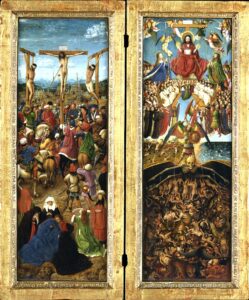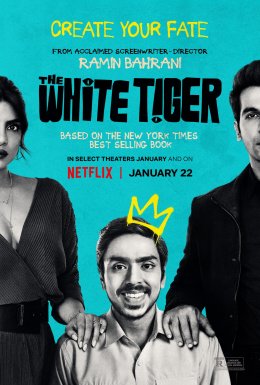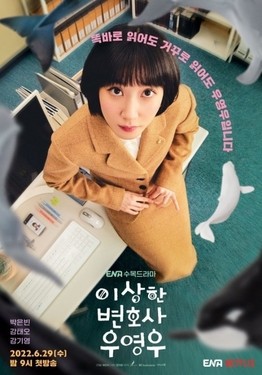None are more hopelessly enslaved than those who falsely believe they are free.
— Johann Wolfgang Von Goethe, (Elective Affinities, Die Wahlverwandtschaften, 1809)
What kind of culture do we want? What kind of culture do we need? Our culture reflects our fundamental ideologies and these ideologies are rooted in patriarchal religion and neoliberal politics in the main.
It’s a culture that depicts the class system, war, and in general, people dealing with the system in its many different facets, through drama, adventure, comedy, terror, horror, etc.
The origins of our culture are thought to go back thousands of years when, for example, (in the ideas of James DeMeo) “climatic changes caused drought, desertification and famine in North Africa, the Near East, and Central Asia (collectively Saharasia) and this trauma caused the development of patriarchal, authoritarian and violent characteristics” about six thousand years ago.
The coming of the Kurgan peoples across Europe from c. 4000 to 1000 BC is believed to have been a tumultuous and disastrous time for the peoples of Old Europe. The Old European culture is believed to have centred around nature-based pagan ideologies.
Some believe the rise of patriarchy was due to the sexual division of labour about 2 million years ago, while others believe it was due to the later development of agriculture and private property.

Christ as Martyr and Master
Jan van Eyck (before c. 1390 – 9 July 1441)
Crucifixion and Last Judgement diptych, c. 1430–1440.
However, these changes led to the growth of patriarchal religions that underpinned the ambitions of warring rulers, for example:
“In Christianity the rulers had a religion that assured their objectives. The warring adventurism of the new rulers needed soldiers for their campaigns and slaves to produce their food and mine their metals for their armaments and wealth. Thus, Christ was portrayed as Martyr and Master. In his own crucifixion as Martyr he provided a brave example to the soldiers, and as Master he would reward or punish the slaves according to how well they had behaved.”
The privatisation of property, extractivism, the necessity for food-producing slaves and a warrior class sustained and further extended the aims of elites throughout feudalism and capitalism up to the wars of today, and who are now competing for power and resources on a global scale. The terminology has changed but the fundamentals have not.
The exploitation of nature continues unabated with the ongoing destruction of the Amazon and wildlife, the global and mass use and abuse of animals, transnational polluting industries, chemical-driven industrial crop land, and factory ship over-fishing emptying our seas. The wars have also gotten greater with two world wars in the twentieth century and a third one hanging over our heads constantly threatening our very existence. The elites are a smaller group of people now but control ever-growing global monopolies.
Thus, looking at culture in general from this perspective, there are two important aspects of modern culture: the destruction of nature combined with death (war) and a culture of slavery (escapism, diversion, etc.).
The antithesis of these two aspects are respect for nature and life, and resistance to slavery in all of its forms. While we are surrounded by the culture of war and escapism, it is not easy to find an oppositional culture.
Yet it does exist, and two good recent examples are the Korean TV series Extraordinary Attorney Woo (2022) (pro-nature), and White Tiger (2021) (anti-slavery), a film based on an adaptation of Aravind Adiga’s 2008 novel of the same name. These two fine dramas show us that alternatives to the current system and ideology can be produced.
Those who will not reason, are bigots, those who cannot, are fools, and those who dare not, are slaves.
— William Drummond (Academical Questions, 1805)
Nature and life – Extraordinary Attorney Woo (2022)
Extraordinary Attorney Woo is the story of Woo Young-woo, an autistic lawyer who is raised by her single father. She finds it difficult to get a job despite graduating with the highest distinction. However, she eventually gets a job in a top Seoul law firm, Hanbada, using her father’s connections. Over time she learns to become an excellent lawyer and her colleagues grow to respect her. The series becomes a platform for progressive social, political, environmental and ethical issues fought out through the courts. Furthermore, the environmental theme is highlighted by her love of whales and dolphins especially when she “analogizes situations she faces in her professional and private life with the lives and characteristics of whales and dolphins [that] often surprises and confounds the people who surround her.”
These situations are often combined with beautiful, if surreal, photography of whales swimming past windows or combined with court scenes. Woo is also seen demonstrating with a colleague against the treatment of dolphins in a local aquarium.
However, Attorney Woo’s fellow rookie colleague, Kwon Min-woo, approaches their supervising lawyer Jung Myung-seok, angry at her sometimes unorthodox behaviour which he feels she is getting away with because of her disability. Jung Myung-seok reacts in a slightly annoyed tone:
“Attorney Kwon, you must really like penalties. […] When you experience a difference of opinion or a conflict at work, you need to talk with your colleagues and solve it. Giving rewards or punishment over who is right or wrong for every single thing, that’s not like how I like to work.”
Here Myung-seok advises that conflict in life must be resolved through discussion, not by ‘giving rewards or penalties’, moving away from the authoritarian methods of the master.
Attorney Woo naturally reacts to selfishness, corruption and discrimination but she gradually learns that the pursuit of truth is a difficult path to carve out. Apart from Woo being a symbol of logic and reasoning in the service of truth, her connection with nature is direct and not mediated by a negative, consumer-orientated culture.
Disobedience is the true foundation of liberty. The obedient must be slaves.
— Henry David Thoreau (from his journals, 1847)
Resistance to slavery – White Tiger (2021)

Promotional poster for White Tiger (2021)
Balram believes “that the Indian underclass is trapped in a perpetual state of servitude, like chickens in a chicken coop.”
He states that “The greatest thing to come out of this country in its ten thousand year history: The Rooster Coop. They can see and smell the blood. They know they’re next. Yet they don’t rebel, they don’t try and get out of the coop.” He asks why the workers are so honest in their relations with their masters. “Why? Because Indians are the world’s most honest and spiritual people? No. It’s because 99.9 percent of us are caught in the Rooster Coop. The trustworthiness of servants is so strong that you can put the key of emancipation in a man’s hand and he will throw it back at you with a curse.” He describes the main problem of Indian society: “In the old days, when India was the richest nation on earth, there were one thousand castes and destinies. These days, there are just two castes: Men with Big Bellies and Men with Small Bellies.”
The writer of the original novel (The White Tiger, p254, 2008) Aravind Adiga, noted in the novel that:
I won’t be saying anything new if I say that the history of the world is the history of a ten-thousand-year war of brains between the rich and the poor. Each side is eternally trying to hoodwink the other side: and it has been this way since the start of time. The poor win a few battles (the peeing in the potted plants, the kicking of the pet dogs, etc.) but of course the rich have won the war for ten thousand years.
Balram’s escape from slavery, his resistance to the master, comes with tragedy as his extended family is murdered by the village landlord. He believes that he is a White Tiger, a symbol of freedom, because he escaped slavery and ultimately encourages his own employees to do the same (monologue and description from the screenplay):
“Balram speaks directly to his Drivers as he gathers them and brings them outside to the front of his business.
BALRAM – Now, what happens in your typical Hindi film about murder? A poor man kills a rich man and then gets nightmares of the dead man pursuing him screaming: “Murderer! Shame!” It doesn’t happen like that. The real nightmare is the other kind – where you didn’t do it, that you didn’t kill your master, that you lost your nerve, and that you’re still a servant to another man. But then you wake up, the sweating
stops, your heartbeat slows. The nightmare is over. You did do it. You killed your master.
Balram steps away from them and speaks directly into the camera:
BALRAM (TO CAMERA) – I have switched sides. I’ve made it. I’ve broken out of the coop.
He exits frame, leaving a wall of drivers, servants, perhaps new White Tigers, ready to strike, confronting the camera, confronting the audience…”
Balram takes chances and resists slavery. He may be wealthy now but he does not feel part of the wealthy class. He has broken out of the coop and ‘switched sides’, and he has no problem enlightening and even encouraging his drivers to do the same. In a way he plays the rich at their own game: using their tactics of murder and disloyalty to escape from their binds.
Happy slaves are the bitterest enemies of freedom.
— Marie von Ebner-Eschenbach (Aphorisms, 1880/1893)
Of diets and glaciers
Given the current state of the political and financial crises of late capitalism. i.e., the possibility of an all-out global war and the worsening destruction of the environment (upon which our sustenance is based), the constant re-examination of our culture is of utmost importance. For many people the movement for change seems glacial and leads them to live out their lives on the cultural diet created mainly by producers whose primary motive is profit, not social and political change.
However, the illusion of peace and freedom created by this timeless culture is situated in real historical conditions that are constantly changing. Over time and with different forces underneath, even the slowest of glaciers can suddenly break apart and form cracks. The greatest aspiration of cultural producers today would be to show that happiness does not consist in diversion from worry but in confronting the sources of our current ills instead, and to remember what Leonard Cohen wrote, “Forget your perfect offering. There is a crack in everything. That’s how the light gets in.”
